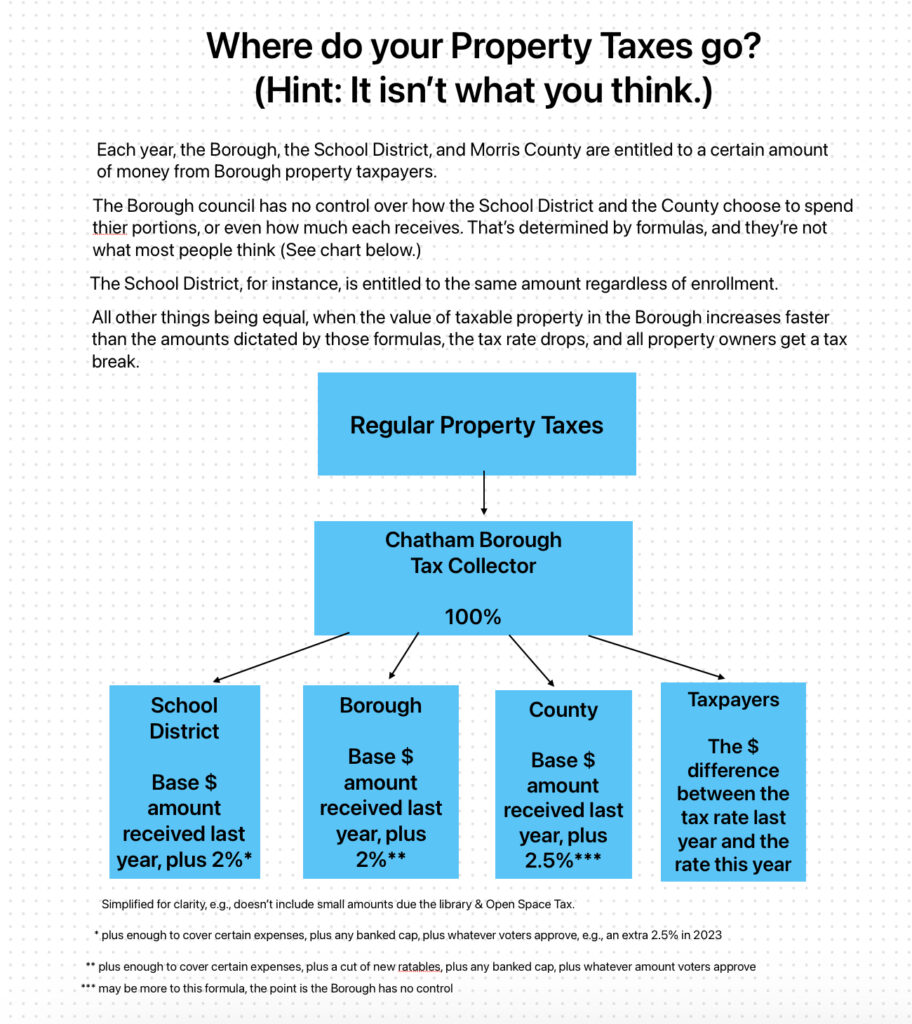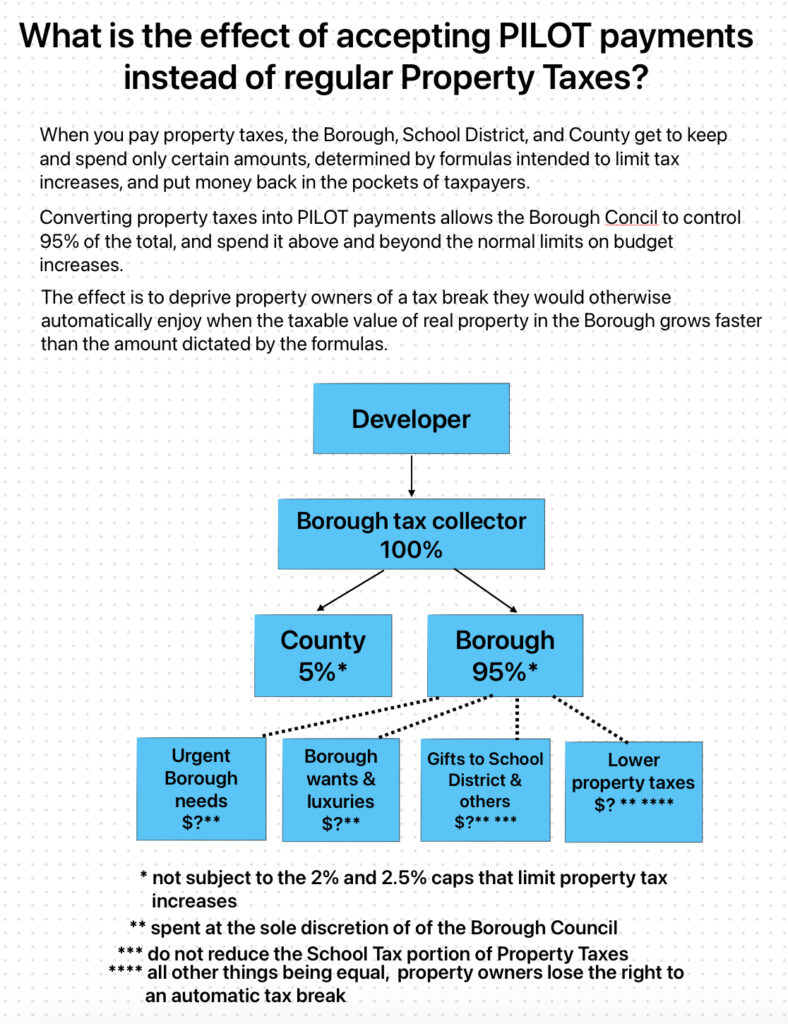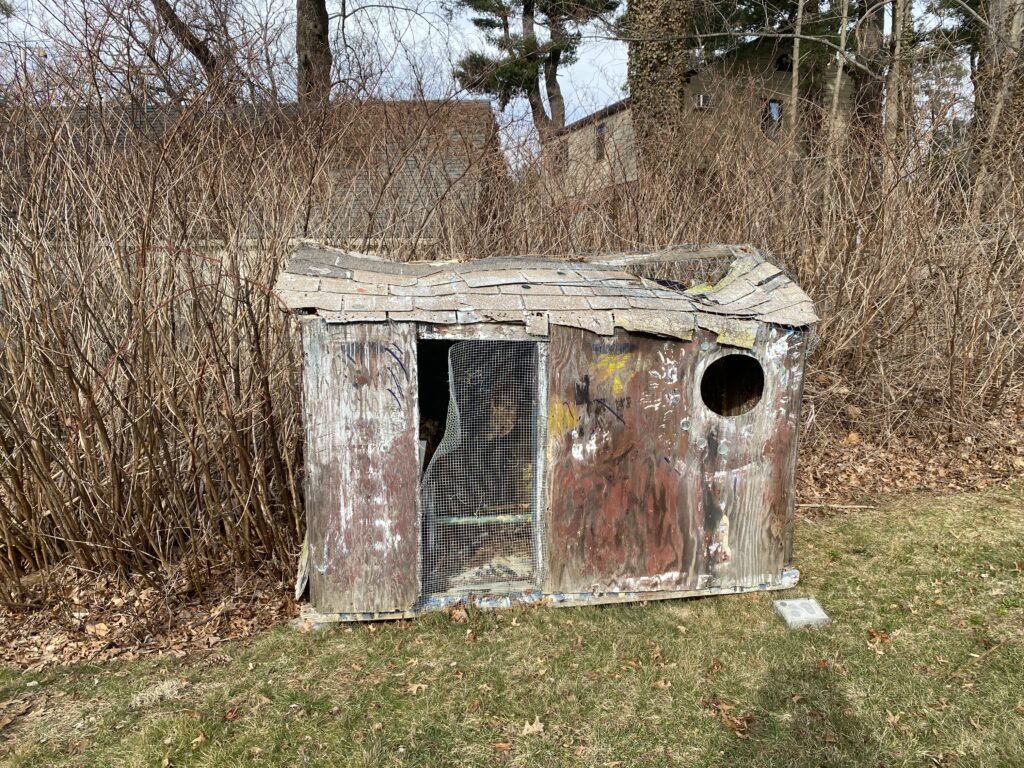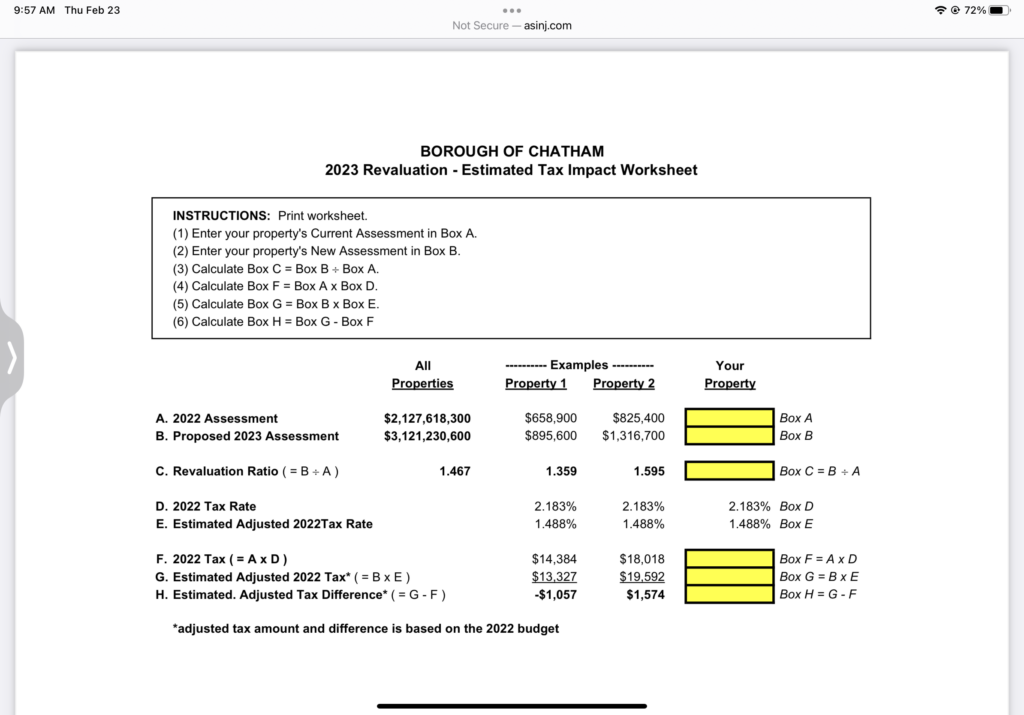This Monday night, January 8, the Borough will swear in our new Mayor, civic-minded second term Council member Carolyn Dempsey, and three new Council members, all hand-picked by the local Democrat party leaders with no opposition.
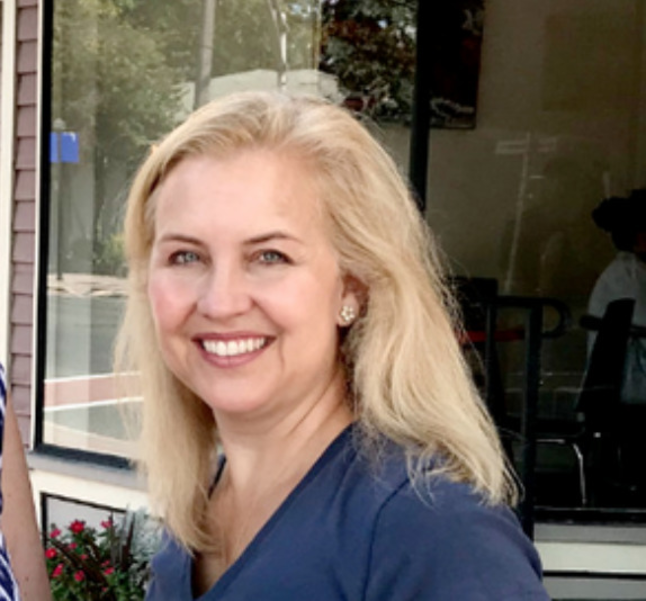
What can we expect of them? Plenty of ceremonies, concerts, and celebrations to be sure.
But behind the scenes, our new Mayor & Council will soon face serious challenges, and will need to make big decisions that will affect all of us for many years to come. Here are some important ones:
1. Post Office Plaza
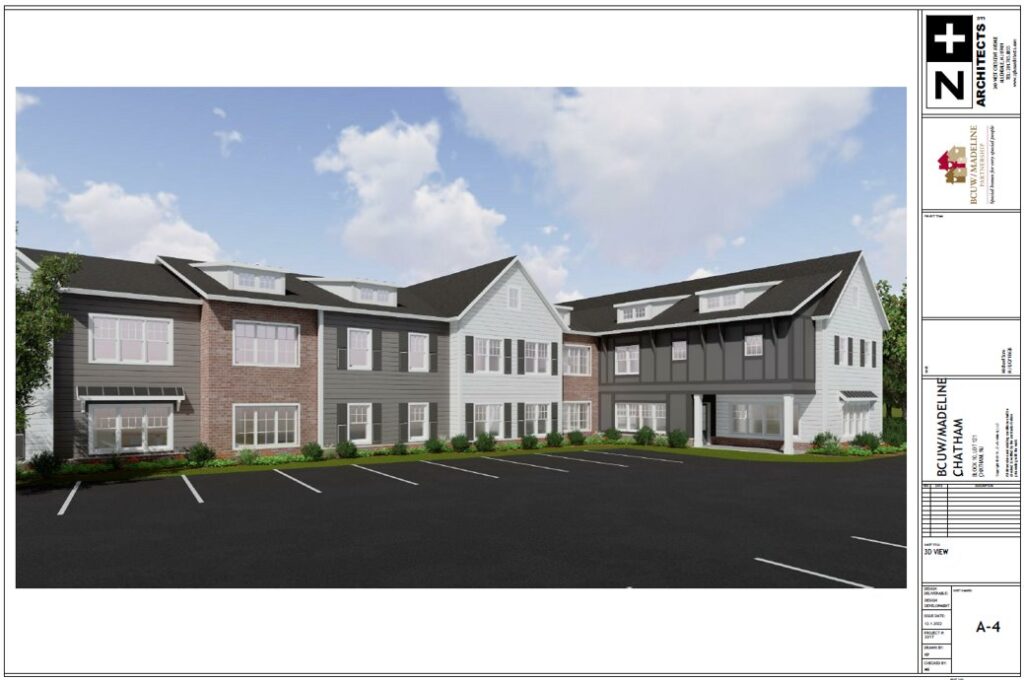
This month marks the deadline for the Mayor & Council to either:
- secure enough grant money to construct a 15-unit, 100% affordable apartment house at Post Office Plaza; or else
- borrow whatever it takes to build that project – potentially $6 million or more – while continuing to seek grants, as agreed in 2022.
We should all thank former Mayor Thaddeus Kobylarz, then-Council members Len Resto and Frank Truilo, and Council member Irene Treloar for achieving that agreement. It’s a far better outcome than the 100+ rental unit, 85% luxury alternative the other Council members were pushing then, and a far, far better outcome than the 230-rental unit monstrosity the Harris administration was ready to go with in 2019. But now it’s time to get to work.
By the end of March, the Borough must break ground on the 15-unit project, and it must have a Certificate of Occupancy by March 2025, after which the Borough will serve both as the provider of municipal services and as landlord for the next 30 years.
2. Pilot Money
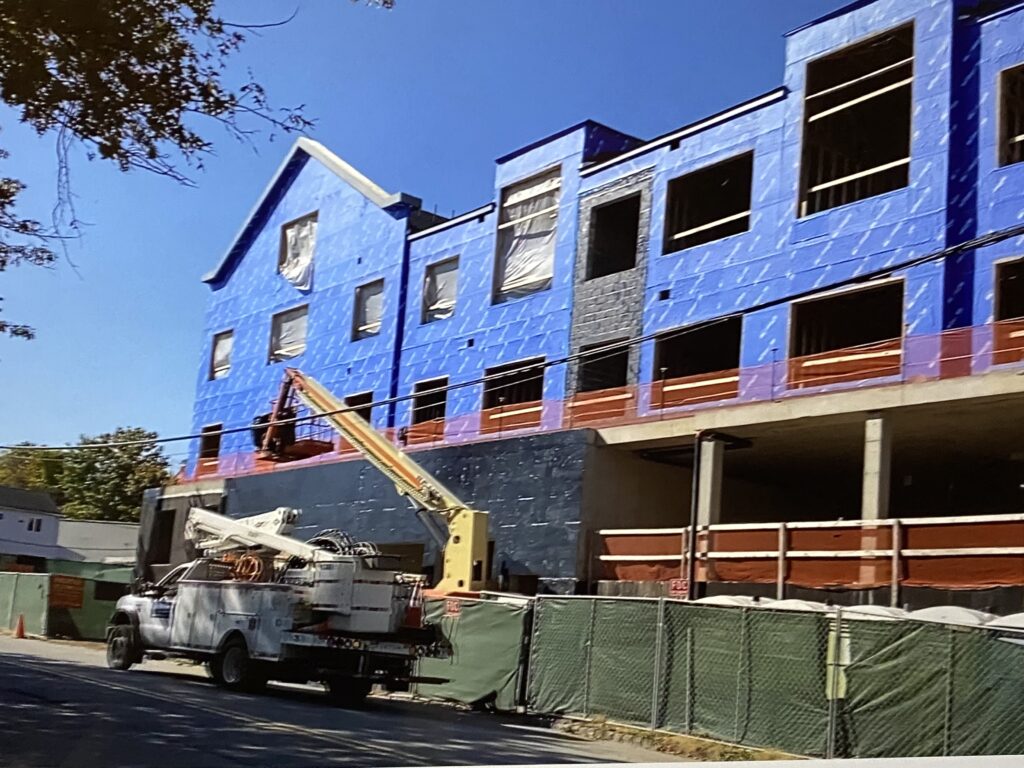
https://www.theivychatham.com/
The big, tax-exempt Ivy housing project on River Road should soon begin to help earn its keep by making payments-in-lieu-of-taxes, also known as PILOT payments. The Council will need every penny to pay for necessities, including new fire trucks, and luxuries like the Stanley Center.
At the same time, the Council will continue to face intense pressure to donate some funds to the joint public School District, based on the mistaken belief that PILOTs cheat the schools.
If the Council succumbs to that pressure, Borough taxpayers will bear more than our fair share of School District expenses, and the Council will need to borrow more money to fulfill its own responsibilities.
https://chathamchoice.org/2023/06/why-should-chatham-borough-pay-more-than-its-fair-share/
The Council would best serve its constituents by flatly denying those demands and reminding the School Board that the School District can and should make any appeal for more funding directly to the taxpayers, by putting on the ballot either a referendum or a second question as it did last November.
For the Council to make a deal directly with the School District, no matter the dollar amount or purpose, would be to cut the taxpayer out of the process. That would be unnecessary, inappropriate, and irresponsible unless taxpayers unequivocally consent to delegate that decision to the Council.
3. More development at River Road
As the Third Round of Affordable Housing obligations winds down, and the July 2025 start date for the Fourth Round nears, the Borough can expect a spate of applications to build multi-family apartment projects, no doubt including one at the Bradley lots on Main Street, the subject of a 2020 lawsuit against the Borough.
The Borough cannot allow all of that construction without sacrificing the small town charm that makes Chatham attractive. And yet, to refuse any of those proposals will be to take a chance on another expensive and risky tussle in court.
It seems the new administration is inclined to solve that problem by sacrificing the rest of River Road to a sea of 862 additional residences.
https://patch.com/new-jersey/chatham/election-2023-carolyn-dempsey-chatham-borough-council
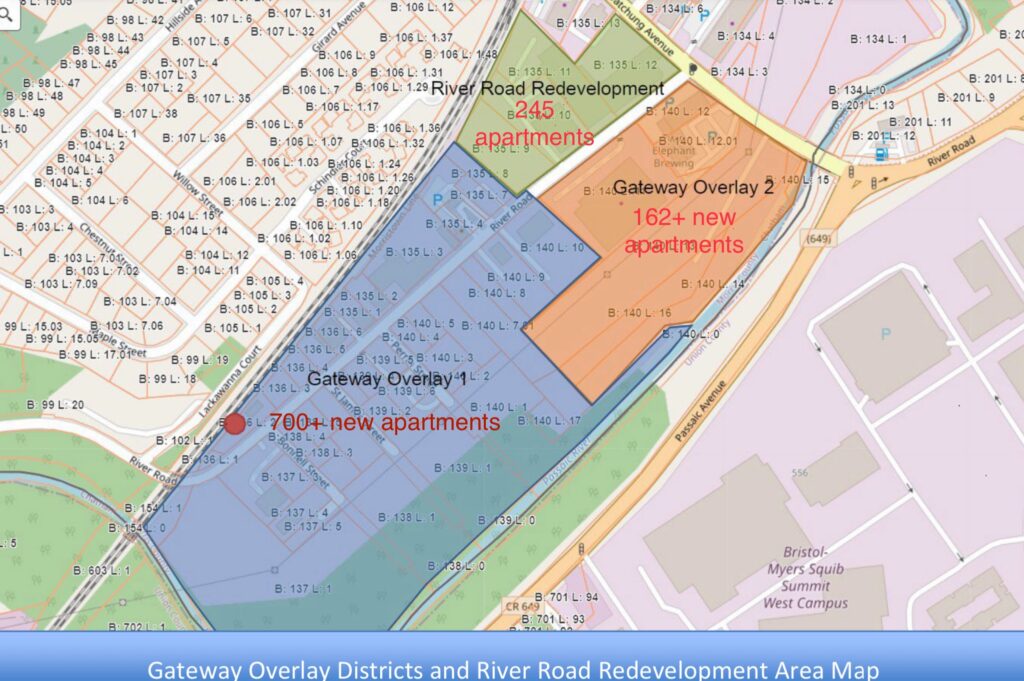
https://chathamchoice.org/2022/10/whats-that-on-river-road/ (Please note that the Council may choose waive these limits, increasing the density.)
The rationale is that the Borough cannot prevent construction of more than 800 additional apartments there, so the Mayor & Council might as well try to negotiate for some control and a few public benefits by adopting another redevelopment plan.
That is a mirage. Sure, eager developers will promise to throw in a “free” jogging path along the Passaic River and maybe some extra help meeting our affordable housing quota. But in exchange they will expect the Council to grant them permission to build even bigger housing projects, and to waive all property taxes, which will reduce our tax base.
All other things being equal, deals like that will mean higher property taxes for the rest of us. In effect, Borough taxpayers will bear the cost of that “free” jogging path and a little affordable housing, and will face increasing municipal expenses with potentially inadequate funds.*
Before embarking on another big project, our new Mayor & Council should do their due diligence. At the very least, they should unleash their best experts to help them explore the many other ways the Borough could meet its affordable housing quota, including subsidizing the conversion of existing apartments from market rate to affordable.
Yes, that would cost us, but so does the “free” help the big developers offer. And the time to explore it is now, before it’s too late to pursue it, as happened in the Third Round, when the Council deferred too much to hired experts and wound up with only a few poor options for the redevelopment of Post Office Plaza in 2022.
If the Mayor & Council do choose to pursue another redevelopment project, they must take care not to repeat the mistakes of the past, such as overestimating the PILOT revenues and letting BNE slide on the promised solar panels at the Ivy.
Perhaps most important are for the Mayor & Council to: 1) refrain from placing blind faith in experts; 2) maintain control on matters of policy, instead of ceding those decisions to experts; and 3) stand firm in negotiations, refusing to waive any rights or negotiated terms without strong justification and ample compensation.
4. Surviving Round Four
In the Fourth Round of Affordable Housing that begins in July 2025, the Borough will need to:
- negotiate with Fair Share Housing Center as to an additional affordable housing quota for the period 2025-2035;
- persuade a Superior Court judge to approve a fair settlement; and
- satisfy the judge that the Borough is living up to its promises so the judge will extend through 2035 the Borough’s immunity from builders’ remedy lawsuits and exclusionary zoning challenges.
Unless the Mayor & Council can satisfy the Superior Court on that score by September 29, 2026, the Borough will lose its immunity, leaving it vulnerable to more lawsuits and severe punishments, including the loss of what little control we still have over zoning and planning, as has happened in towns like Millburn and Englewood.
That said, it’s absolutely critical for the Mayor & Council to stand firm, refusing to waive any rights or compromise its negotiating position in any way without strong justification.
5. Revising the Master Plan
By 2026 Chatham must reexamine its Master Plan, the all-important document that will determine our local zoning and development policy through 2036.
https://law.justia.com/codes/new-jersey/2022/title-40/section-40-55d-89/
That’s serious business. Even an innocent error in the Master Plan could spell disaster for Chatham.
So though it’s the Planning Board that will do the heavy lifting, the Mayor & Council should make it their business to understand the nuances and implications, be vigilant, and raise their concerns in time to make a difference in the outcome for Chatham.
* What’s the difference between property taxes and PILOT payments?
